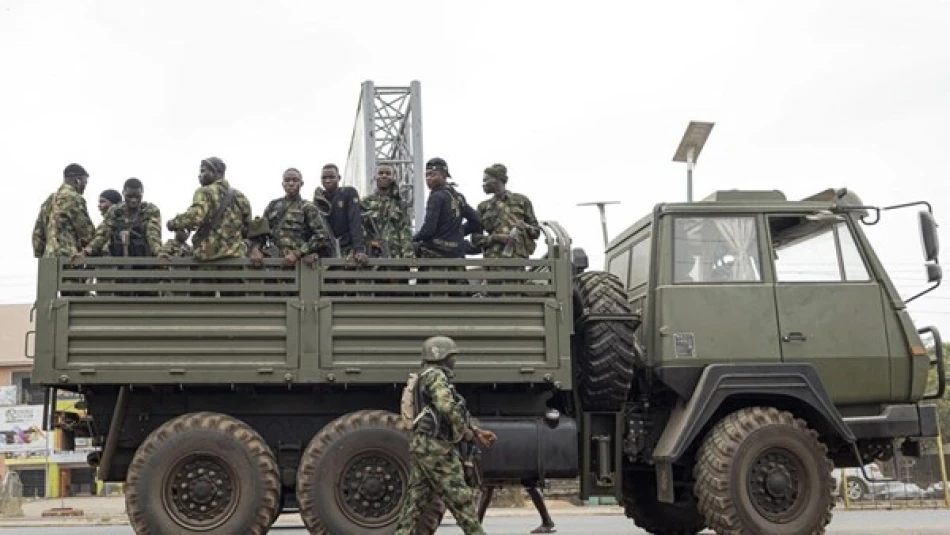
Nigerian Forces Eliminate Scores of Extremists in Decisive Counter-Terrorism Offensive
Nigeria's Air Force Claims Major Strike Against Terror Groups Near Cameroon Border
Nigeria's military escalated its northeastern counterterrorism campaign with airstrikes that allegedly killed at least 35 militants near the Cameroon border, marking the latest phase in an intensifying eight-month operation that has reportedly eliminated nearly 600 insurgents. The preemptive strike underscores Nigeria's shift toward more aggressive air-based tactics in a region where Boko Haram and Islamic State affiliates have operated for over a decade.
Preemptive Strike Based on Intelligence
Nigerian Air Force spokesperson Iheimen Ijogudami announced that Saturday's operation targeted four militant gathering points after intelligence indicated the group was planning an imminent attack on ground forces. The strikes were conducted near Nigeria's porous border with Cameroon, a region that has served as a corridor for cross-border militant activity since the Boko Haram insurgency began in 2009.
Following the airstrikes, ground forces reportedly secured the area, suggesting a coordinated air-ground operation designed to prevent militant regrouping—a common challenge in Nigeria's vast northeastern territories.
Part of Broader Military Intensification
This operation continues Nigeria's most sustained military push in the northeast since 2021. Last week, military officials claimed to have killed 592 militants over an eight-month period, representing a significant escalation in both operational tempo and reported casualties compared to previous years.
The numbers, while unverified by independent sources, suggest Nigeria's military has adopted more aggressive rules of engagement under President Bola Tinubu's administration, which has prioritized security as a prerequisite for economic development in the region.
Strategic Implications for Regional Security
Cross-Border Coordination Challenges
The proximity to Cameroon highlights ongoing challenges in the Lake Chad Basin, where Nigeria, Cameroon, Chad, and Niger have struggled to coordinate counterterrorism efforts effectively. The Multinational Joint Task Force, established in 2015, has shown limited success in preventing militants from exploiting border areas for recruitment, logistics, and escape routes.
Air Power vs. Ground Control
Nigeria's emphasis on airstrikes reflects a broader shift in counterinsurgency strategy across the Sahel region. Similar to operations in Mali and Burkina Faso, air power offers the advantage of rapid response and reduced risk to personnel, but raises questions about long-term territorial control and civilian casualties.
The approach mirrors tactics used by international forces in the region, though Nigeria's domestic air capabilities remain limited compared to French or U.S. operations elsewhere in West Africa.
Economic and Political Stakes
The northeastern states of Borno, Adamawa, and Yobe contain significant agricultural potential and sit along trade routes to Central Africa. Continued instability has displaced over 2 million people and constrained economic activity in a region that could contribute substantially to Nigeria's food security and export earnings.
For President Tinubu, demonstrating military progress in the northeast serves both security and political objectives, as his administration faces pressure to show concrete results in addressing Nigeria's multiple security challenges, including banditry in the northwest and separatist tensions in the southeast.
The sustainability of current operations will likely depend on whether increased military pressure can be converted into lasting territorial control and eventual civilian governance—a transition that has proven elusive throughout the 15-year conflict.
Most Viewed News

 Layla Al Mansoori
Layla Al Mansoori






